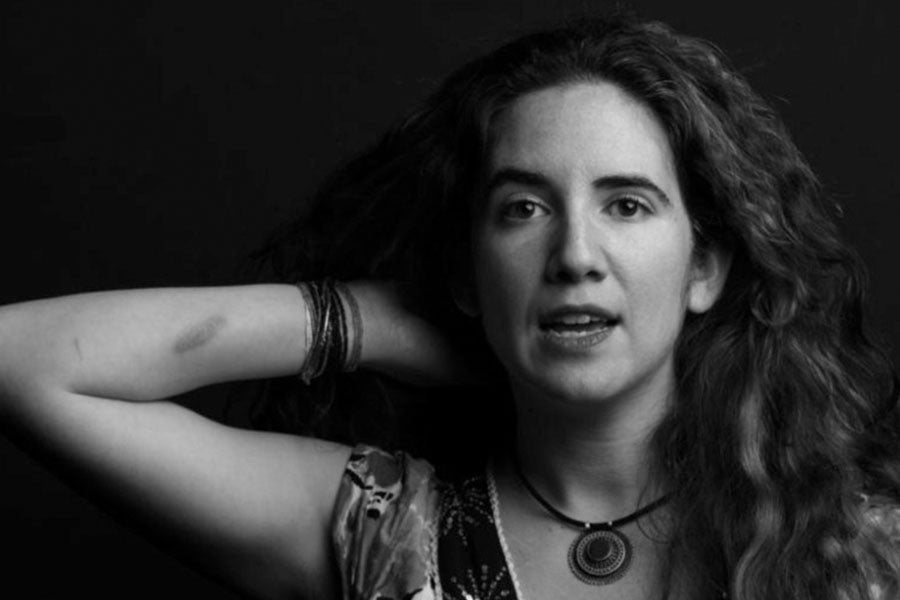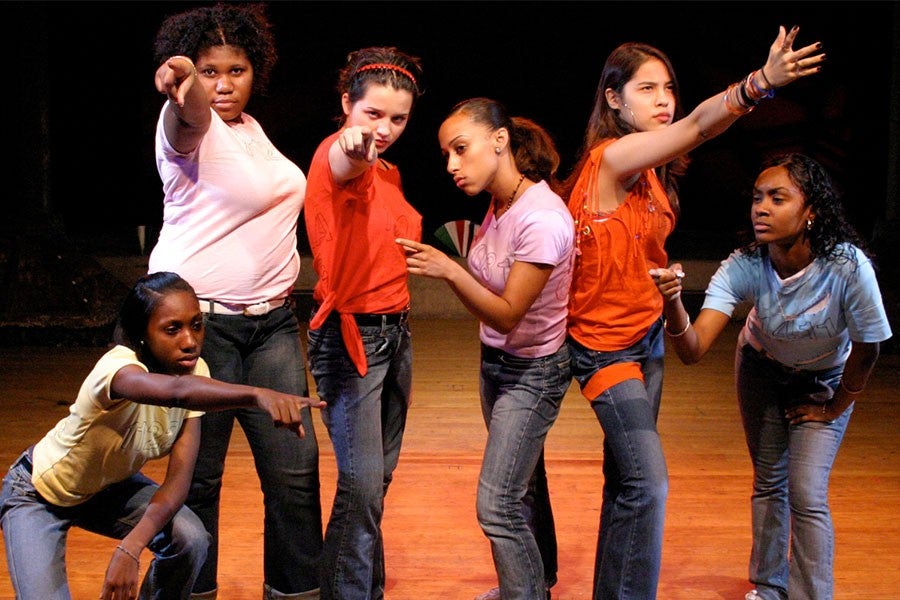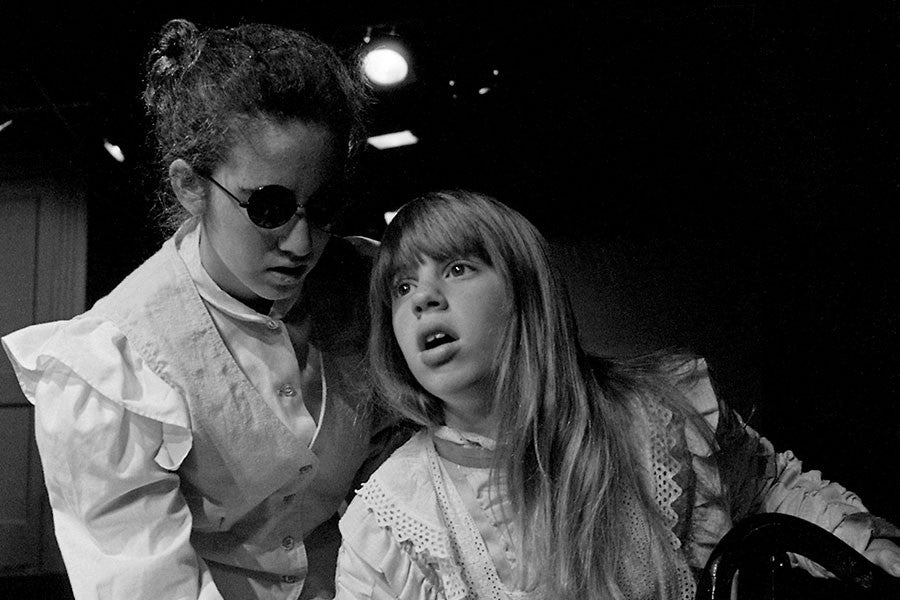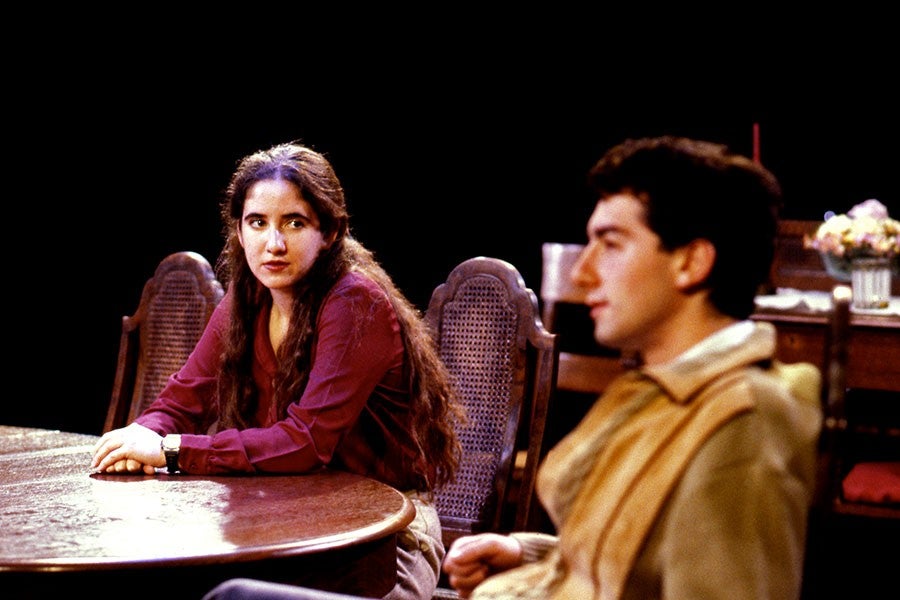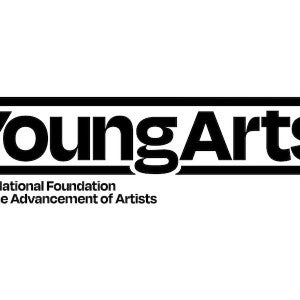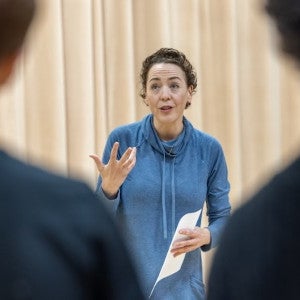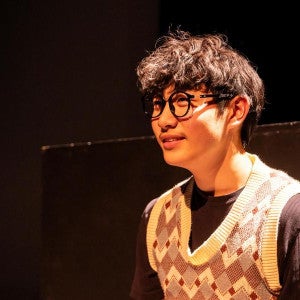Changing the world through theatre
Theatre artist and educator Dana Edell discusses her new book on activist theatre and how Interlochen prepared her to make a difference through art.
Dana Edell (IAC/NMC 89-90, IAC 91, IAA 91-94) tends to take a long view when it comes to theatre and culture, which makes sense for someone who spent their undergraduate years immersed in studies of ancient Greece.
“Every culture has its own history of storytelling and performance,” Edell explains. “In ancient Greece, theatre brought together voting citizens from all classes for plays that were often deeply political. From the very origins of Western theatre, it was always tied to the idea of public action.”
That connection between theatre and social action is a thread that runs through Edell’s career.
After graduating from Interlochen Arts Academy as a theatre major, Edell enrolled at Brown University and sought out opportunities to combine her passions for theatre and social justice. This led to a four-year collaboration with a nearby women’s prison, where Edell and a small group of fellow students provided theatre and playwriting workshops for the inmates. In her senior year, Edell worked with some of the youngest inmates, who were just 18, and everything clicked: she knew that she needed to work with teenagers.
Edell has since founded multiple theatre and arts-based organizations with an explicit goal to create change. In 2002, she co-founded the viBe Theater Experience in New York City, which creates opportunities for teenage girls, young women, and nonbinary youth of color to produce original theatre, music, and media. In 2011, she was part of the founding collective that launched SPARK Movement, which is a “girl-fueled, intergenerational activist organization working to ignite and foster an antiracist gender justice movement to end violence against women and girls and promote girls’ healthy sexuality, self-empowerment and well-being.”
Edell’s new book, “Girls, Performance, and Activism: Demanding to be Heard,” was released at the end of August by Routledge. We caught up with Edell to learn more about her path as an artist, teacher, and activist.
What is activist theatre? How is it different from traditional theatre?
The main difference is that activist theatre is about igniting the audience to do something. In a traditional theatre experience, you have actors performing on the stage and the audience sitting in darkness, watching in a very Aristotelian way and experiencing catharsis. A lot of times in traditional theatre, the message is that ‘the world is a mess.’ And the performance shows you some of that mess and then you go home and think about the mess. Even if the play has some kind of social justice theme, in the end, the audience just goes home and it's all done. They consumed a story.
For example, when I saw Angels in America as a teenager, I cried, and it changed me. But I still didn’t go do anything about the AIDS epidemic. Angels in America raised awareness about the AIDS epidemic to an audience that frankly didn't care enough at that time. That’s still very important work in social justice. But the key difference is that there was no call to action. If Angels in America had been activist theatre, we would have been provided with an opportunity to walk out of the theatre and take action, such as marching to demand more funding for AIDS research.
In our work, we want to do more than just illustrate or reenact the issues that are impacting the lives of teenagers because when you do that, your audience goes home feeling moved or inspired, but also helpless. We want to create a space for the audience and the performers to engage in a critical dialogue to brainstorm strategies to really think about their own personal role in the crisis and what steps they can take tomorrow to improve the world. It’s about moving us forward.
Is there a specific campaign that stands out for you as an example of how activist theatre can be a vehicle for change?
In 2012, SPARK Movement created a successful activist campaign that resulted in Seventeen Magazine promising not to Photoshop girls and committing to ethnic and body size diversity.
We staged a performance on the sidewalk right in front of the skyscraper where the magazine has its offices. A bunch of girls did a mock photoshoot on a fake runway, and we invited all these photographers to join us. Then the girls shared their stories about what it’s like to be bombarded with all of these unrealistic body images and expectations in page after page of teen magazines.
This performance, along with a petition signed by 80,000+ people, led to a meeting with the editor of the magazine. One of the girls who played a key role in the campaign and I sat down with the editor and talked about the impact that these digitally enhanced images can have on their readers.
The editor and the magazine listened, and they changed. It was very exciting. Not only did we make a difference on this specific issue, we also empowered all of the girls who took part. They all know that they can make a difference in the world.
How did your experiences at Interlochen influence your artistic journey and career?
At Interlochen, we were all treated like artists. No one questioned whether we were capable of making “real theatre” or if that was an acceptable path to follow. We were doing professional-level theatre, and our teachers trusted that we could do this rigorous, hard work.
In my senior year, I decided to direct a show, on my own, outside of class. I told my theatre teachers and they weren’t too excited by the idea—but they didn’t say no either. So I ended up directing Equus as a 17-year-old. All my theatre major friends rehearsed in the dorms at night. And once the faculty realized we were serious, they even let us use the theatre for a couple of nights. I don't know any other high school where a group of teenagers could just decide to put on a full show on their own.
That whole experience was incredibly transformative and empowering: realizing that we can do it on our own. We can make things happen.
What is your most memorable or inspiring Interlochen moment?
Some of my best memories of Interlochen are from those winter weekends when a blizzard would prevent the bus from taking us into Traverse City. When that happened, there was nothing to do. But we were a bunch of artists, so of course we’d just make a show!
All of us theatre kids would find some musicians and we’d go out to the snowy woods. Someone would show up with a camcorder and we would create something new together. It wasn’t until years later that I realized just how talented all those people were.
I think about that all the time, and it is still so deeply inspiring to me.
"Girls, Performance, and Activism: Demanding to Be Heard" can be purchased from Routledge, Amazon, and many other booksellers.
